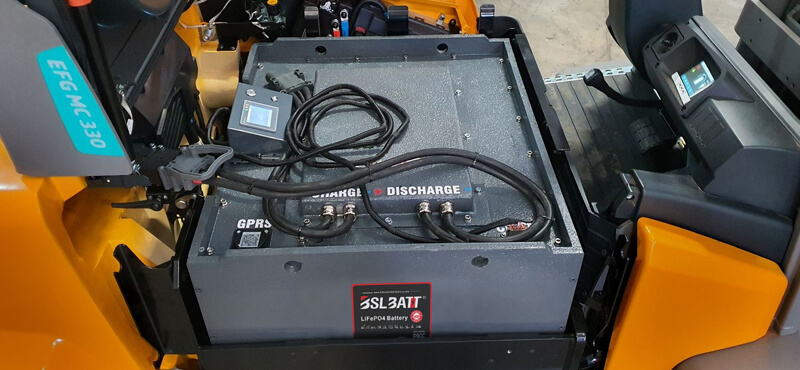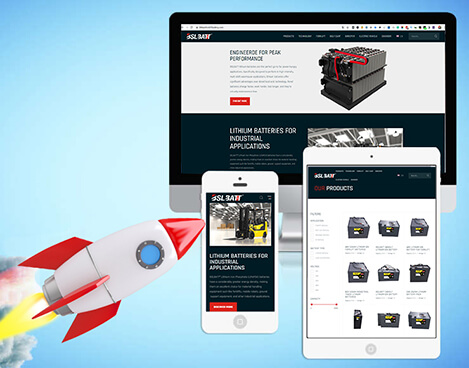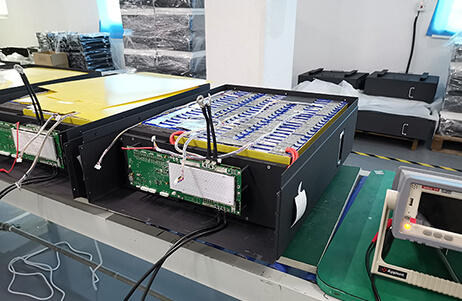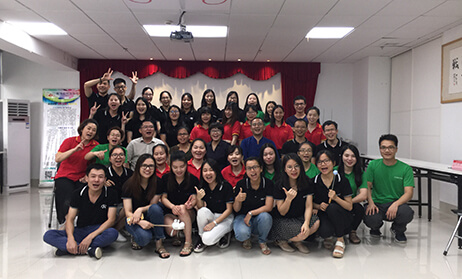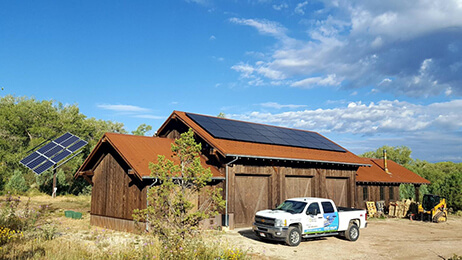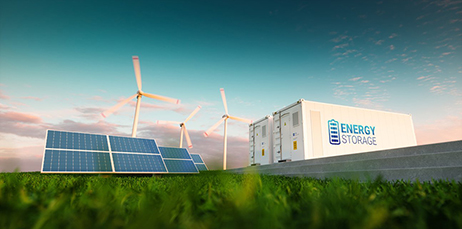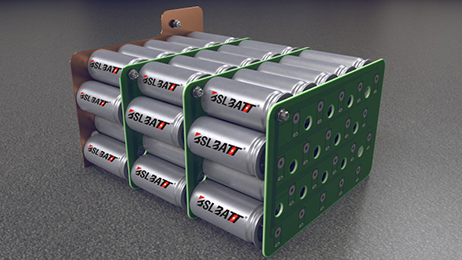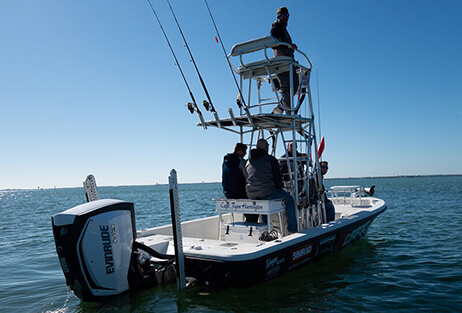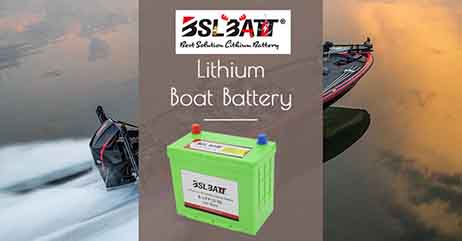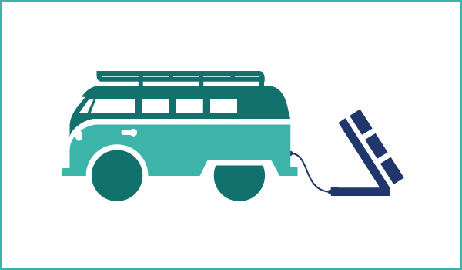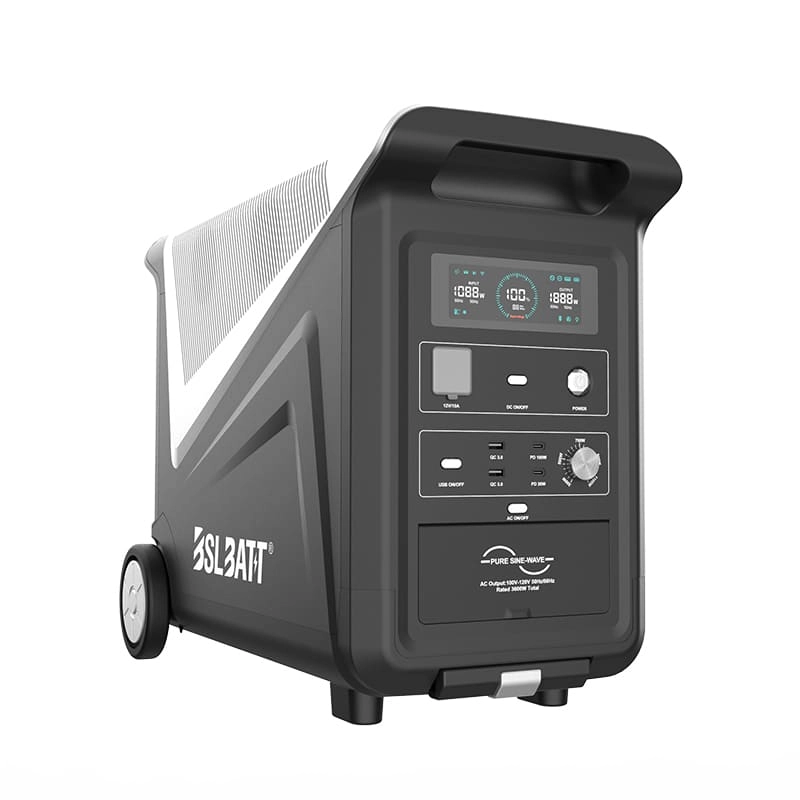Industry Application
Product Type
BSLBATT Unveils New Lithium Forklift Battery Complete With Game-Changing Technology
Published by BSLBATTMar 27,2020
BSLBATT Unveils New Lithium Forklift Battery Complete With Game-Changing Technology
For “BSLBATT” (Best Solution Lithium Battery), the world leader in lithium battery technology, “The world’s most outstanding green power provider” is not just a compelling slogan. This seems to be an absolute mission. A few months after the launch of the new Powerwall series (Powerwall a series of best suited for home energy), “BSLBATT” (Best Solution Lithium Battery) announced the next-generation lithium battery BFL series Lithium forklift battery. BSLBATT has introduced a new technology that is the only LiFePO4 embedded replacement battery produced in China using the “full water system”. It has an industry-standard size and requires no additional hardware when connected in parallel. BFL series batteries are designed to replace lead-acid batteries in any deep cycle applications, including forklifts, golf carts, floor machines, scissor lifts, AGV, BUS, etc. Why Lithium-ion Battery Technology? ● 40% Longer Run Times ● Higher r...
Published by BSLBATTMar 26,2020
Why Lithium Marine Batteries are The Best Choice in 2020
Some people say that if you can get beyond the price, owning a lithium marine battery could be the best thing you have ever done for your boating adventures. However, many people are still unsure of whether it is worth it to make the switch or not. If you are not sure why people would even want to give the newest type of battery a try, now is the time to discover what everyone else is talking about. If you’re planning on upgrading your boat in 2020 with the intention of saving money in the long term, then we’ve put together this article to explain why lithium marine batteries are the best bang for your buck. What is the Lithium Marine Battery? The lithium iron phosphate battery is basically a very large cell phone battery for your boat. However, even though it carries the same name as the battery in your phone, you do not have to worry about it exploding or wearing out in a short amount of time. They are ideal for trolling motors or on boats that may depend on a lot of accessori...
Published by BSLBATTMar 26,2020
BSLBATT® Lithium forklift battery Announces New Website Launch
“BSLBATT” (Best Solution Lithium Battery), a leading global manufacturer of lithium iron phosphate batteries, announced today the launch of its newly revamped website. The new website offers quick and easy access to essential product information and features that offer a more comprehensive understanding of the Company’s lithium forklift battery solutions and lithium battery technology in general. BSLBATT Lithium forklift battery has emerged as a leader in innovation. Our goal is the world’s most outstanding green power provider. The website is the face of our brand, therefore we want it to live up to the brand promise that we are 100% invested,” said BSLBATT’s Director of Marketing, Haley Ning. We are pleased to present our company website in a new, clean and fresh design! The design of the new website and the structure of information improves its overview and usability. The new design, colors, and pictures reflect the BSLBATT brand more than ever. on expressin...
Published by BSLBATTMar 23,2020
BSLBATT-Custom batteries and lithium ion battery pack systems
During the period of climate change and the rapid rise in gasoline prices, the demand for energy saving and ecological energy has been increasing. As a major lithium ion phosphate battery pack manufacturer / assembler, BSLBATT believes that lithium ion phosphate battery packs are the preferred power solution for today’s portable devices. Compared to nickel-based batteries, batteries in lithium-ion batteries provide higher energy density per unit volume and weight. In addition, their higher voltage and light weight help reduce the size of electronic devices, reduce weight, and simplify operation. Introduce yourself and your startup to your readers! BSLBATT® is a professional lithium ion battery and battery system developer based in Huizhou, China, with over 18 years of R & D and OEM services. Our products comply with ISO / CE / UL / UN38.3 / ROHS / IEC standards. We combine engineering, electronic circuits, modern manufacturing methods and sustainable suppliers from aro...
Published by BSLBATTMar 17,2020
12V Marine Lithium Batteries the Boats of the Future
Whether you’re a commercial fisherman, captain, compete in fishing tournaments regularly, or simply just enjoy going out to the sandbar on the weekends, you probably realize that the number one problem when boating is having a reliable battery. Our marine lithium-ion batteries provide both starting power and can allow you to safely use 100% DOD (depth of discharge) for your house bank. With less than 1% a month self-discharge, vessels with our batteries can stay fully charged for over a year with no use. BSLBATT Lithium Battery technology can last up to 5000 cycles. Typically a deep cycle lead battery will only last around 300 – 500 cycles. Meaning you may have to replace your lead batteries over 15 times to equal the life of just 1 BSLBATT Battery. BSLBATT Lithium Ion Batteries will save you thousands of dollars over the life of your application making this a BSLBATT Investment. Think about all of the money and frustration you have spent on lead batteries. Lithium is a gre...
Published by BSLBATTMar 16,2020
BSLBATT RENEWS ITS IEC CERTIFICATION
BSLBATT is professional lithium-ion battery manufacturer, including R&D And OEM service over 18 years, our products are qualified with ISO/CE/UL/UN38.3/ROHS standard. Obtained IEC system for mutual recognition of test certificates for electrical equipment(IECEE)CB scheme。 BSLBATT® has renewed its IEC certification. By meeting the requirements of quality control and continuous improvement, BSLBATT® again proves its ability to consistently deliver quality products to its customers. The International Electrotechnical Commission (IEC) is a not-for-profit, quasi-governmental organization, founded in 1906. The IEC’s members are National Committees, and they appoint experts and delegates coming from industry, government bodies, associations, and academia to participate in the technical and conformity assessment work of the IEC. “The renewal of the certificate confirms the company’s high attention and efforts on lithium iron phosphate batteries. As a lithium bat...
Published by BSLBATTMar 09,2020
Lithium Batteries Provide Backup Power When You Need It Most
You may be wondering, what is the best backup power solution? For decades, lead-acid batteries have been the most widely adopted batteries for renewable energy systems. However, a shift is occurring as more users discover the advantages of lithium iron phosphate batteries (LiFePO4). They are now widely used to power homes and are gaining popularity as residential back up due to their many advantages. And the benefits and potential goals of using this power source are different for both date center designers and engineers. First off, for data center engineers, using lithium-ion batteries can help in designing data center layouts for best use of space and organizing or redeploying IT footprints, according to the report. Lithium-ion batteries are smaller in size and weight than your average battery, making them easier to use and manipulate for data center applications. They also have a longer lifespan and cycle life than lead-acid batteries or other types of lithium batteries. On t...
Published by BSLBATTMar 05,2020
LEAD-ACID VS LITHIUM BATTERIES: WHICH ARE BEST FOR SOLAR?
Lead-acid vs. Lithium Battery Comparison Lead-acid batteries cost less upfront, but they have a shorter lifespan and require regular maintenance to keep them running properly. Lithium batteries are much more expensive upfront, but they are maintenance-free and have a longer lifespan to match their higher price tag. This article offers a side-by-side comparison of both options. Specifically, we’re going to look at lead-acid vs. lithium-ion batteries — the two main battery types used for solar. Here’s the summary: Lead-acid is a tried-and-true technology that costs less, but requires regular maintenance and doesn’t last as long. Lithium is a premium battery technology with a longer lifespan and higher efficiency, but you’ll pay more money for the boost in performance. Let’s go over the pros and cons of each option in more detail, and explain why you might choose one over the other for your system. We now have a full range of 12V, 24V, and 48V lithium-ion batteries for your solar ...
Published by BSLBATTFeb 29,2020
Lithium iron phosphate vs lithium-ion: differences and advantages
Lithium iron phosphate (LiFePO4) battery Lithium iron phosphate (LiFePO4), also called LFP, is one of the more recently-developed rechargeable battery chemistries and is a variation of lithium-ion chemistry. Rechargeable lithium iron phosphate batteries use LiFePO4 as the principle cathode material. Despite having a lower energy density than other lithium-ion chemistries, lithium iron phosphate batteries can provide better power density and longer life cycles. Lithium-Ion Lithium-ion can consist of two different chemistries for the cathode, lithium manganese oxide or lithium cobalt dioxide, as both have a graphite anode. It has a specific energy of 150/200 watt-hours per kilogram and a nominal voltage of 3.6V. Its charge rate is from 0.7C up to 1.0C as higher charges can significantly damage the battery. Lithium-ion has a discharge rate of 1C. BSLBATT is your premier LiFePO4 battery assembler. We manufacture custom lithium iron phosphate battery packs and assemblies for many app...
Published by BSLBATTFeb 21,2020
Boasting the benefits of Lithium Marine Batteries for Saltwater Angler
You can see the sunrise over the ocean or Deep Bay. As with any fishing, the expectations for the upcoming day are unparalleled. The feeling of excitement is similar to a child waking up on Christmas morning. It sounds a bit dramatic, but it’s true. Although the core of fishing is still a relatively straightforward hobby, there is no doubt that it has evolved with the times. Boats are no longer just “boats”, they have become fishing gear that can dive into the depths and shallows for potentially lurking giants. Electric ships have the advantages of environmental protection, zero pollution, safety, and low use costs. Their operating costs are significantly lower than those of diesel and LNG fueled ships. In addition, the electric ship has a simple structure, stable operation, low maintenance costs, and is more suitable for future environmental protection trends. At present, electric ships are mainly used in the civilian field. In the future, there will be more pu...
Published by BSLBATTFeb 17,2020
What Is a Deep Cycle Battery? – Lithium Battery Guy
Batteries are just batteries, right? They store energy and give it off as needed. But the truth is, while all batteries store energy, there are significant differences in how that works for different types of batteries, and which of those batteries are most effective for different applications. Deep cycle batteries, for instance, may look a lot like car batteries to people who aren’t familiar with them, but in reality, they’re quite different. Before choosing a battery type, consider what you will be using it for. One battery type will be more suited to your specific purpose than another. In this post, we’ll dive into the world of deep cycle batteries. We’ll learn what they are and what they are used for. DEEP CYCLE BATTERY DEFINITION A lithium deep cycle battery is a lead battery designed to provide sustained power over a long period and run reliably until it is 80% discharged or more, at which point it needs to be recharged. It is important to note that...
Published by BSLBATTDec 11,2019
RV Solar Works – Everything You Need To Know!
25 million Americans traveled in RVs this spring and summer alone. The RV lifestyle has become a movement in the United States. RVers come from diverse backgrounds and age groups. There’s something about the freedom that an RV brings. Spending time with family, going off the grid, and enjoying nature are among the top reasons people love to RV. The downside? Lack of electricity. More and more RVers are turning to RV solar setups to power their lives while on the road. Keep reading to learn more about how RV solar works and why you should go solar today. How do solar panels work for RVs and motorhomes? In order to generate and use solar power for your RV, you’ll need a setup complete with the following components: Solar panels A charge controller to prevent overcharging your storage system Solar batteries to store energy (common options are lead-acid or lithium-ion) An inverter to convert DC electricity to AC electricity (occasionally pre-built into the solar battery compone...








